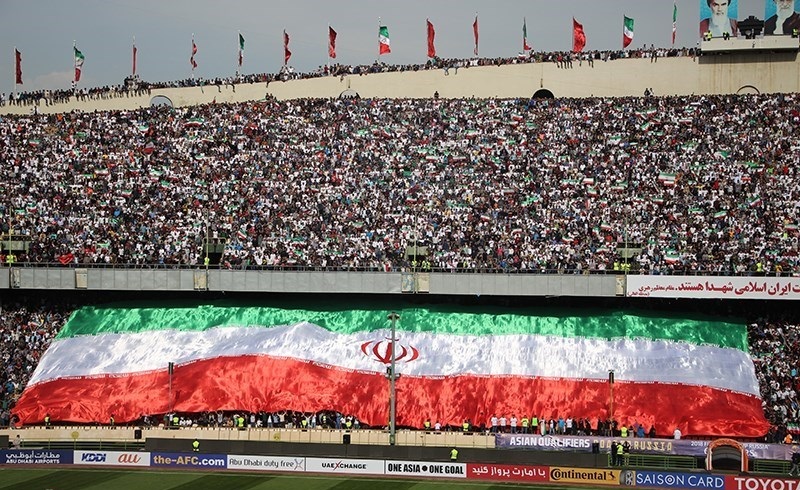Alwaght- The sports events and mainly football have always been affected by politics despite the slogans and strictness calling for keeping them away from the political matters. This has been proven more than once.
In sports events, many political issues have taken place or these events are intentionally mixed with political confrontations. After all, the politicians know that the sports events, due to their universal nature, can be used to realize their political aspirations. For example, the British football fans in their national team’s match with Germany sing “Two World Wars and One World Cup” song.” The song came costly for the Germans when their team met England in 2001 and lost 5-1, with a couple of hours after the loss, the father of Germany's national team coach Rudi Völler suffered a heart attack.
In another example, the coup-led government of Argentina took advantage of the world cup games advertisements of 1979 for its political favor. Argentina won the cup. Argentina championship triggered many questions with many arguing that the win was a result of match-fixing between the governments of Argentina and Peru.
Additionally, following escalated tensions between the US and Soviet Union as a result of the Soviet occupation of Afghanistan, the Americans and other Western countries boycotted the 1980 Moscow Olympics.
Arab lobby against Iran in the Asian Football Confederation
The meddling of Arab lobby in the decisions of the AFC and even FIFA is the brazen instance of mixing the politics in the sports through which the states pursue their political goals. Now for the second time in recent years, the AFC has decided against Iran. The AFC chief Sheikh Salman bin Ibrahim Al Khalifa, whose government in Bahrain is even exceeding Saudi Arabia in hostility towards the Shiites and Iran, banned Iran from hosting football matches due to the so-called lack of security. Tehran called the decision “ridiculous and politically-motivated.”
As the Iranian political and sports officials said, the ruling should be related to the lobbying of the Saudis who over the past few years have been struggling to spend petrodollars to on the one hand reverse their defeats in the regional policy against the Iran-led Axis of Resistance and on the other hand give a hand by media blackening to the US campaign of pressure that is aimed to fuel public discontent in Iran. AFC’s 2016 ruling for holding the Saudi-Iranian football matches in a neutral state came with the direct influence of Sheikh Salman who is the top hope of the Saudis to accuse a country of insecurity while it is among the world’s most secure countries.
Corruption in FIFA body, which over the past years has been turned into a den for lobbying and influence making for the government and football mafias, is a brazen matter. One case of revelation discloses how the Qataris won the 2022 cup hosting through bribery paid to the president of FIFA Depp Blatter, who was forced to resign along with aides under pressures. It is so possible that the Saudis, using carrot policy, persuade very small countries with even no prominent clubs, vote against Iran in the AFC.
Insecurity in Iran or the Persian Gulf Arab states?
Regardless of the existence of room for lobbying in the AFC and the hostility between Iran and Saudi Arabia, what proves the political nature of the recent decision of the AFC against Tehran is the level of security in Iran and the countries the marches are not banned there.
Saudi Arabia is one of the countries that over the past five years have been engaged in a devastating war against neighboring Yemen. In retaliation to the Saudi bombings, the Yemeni forces repeatedly carried out missile and drone strikes on sensitive Saudi planes including military sites, oil facilities, and even airports of the capital Riyadh. The anti-Saudi threats not only have not subsided but also increased day by day, displaying the Yemeni power to strike back. The UAE, also assisting the Saudi campaign against Yemen, is a country not immune to retaliatory strikes of Yemen.
Also, the Arab countries, which host the American forces and military bases, are potentially prone to the Iranian retaliatory strikes especially as the situation escalated after the American assassination of the top Iranian General Qassem Soleimani on January 2. Therefore, these Arab countries, not Iran, should be labeled as insecure and thus subject to football marches ban.



























